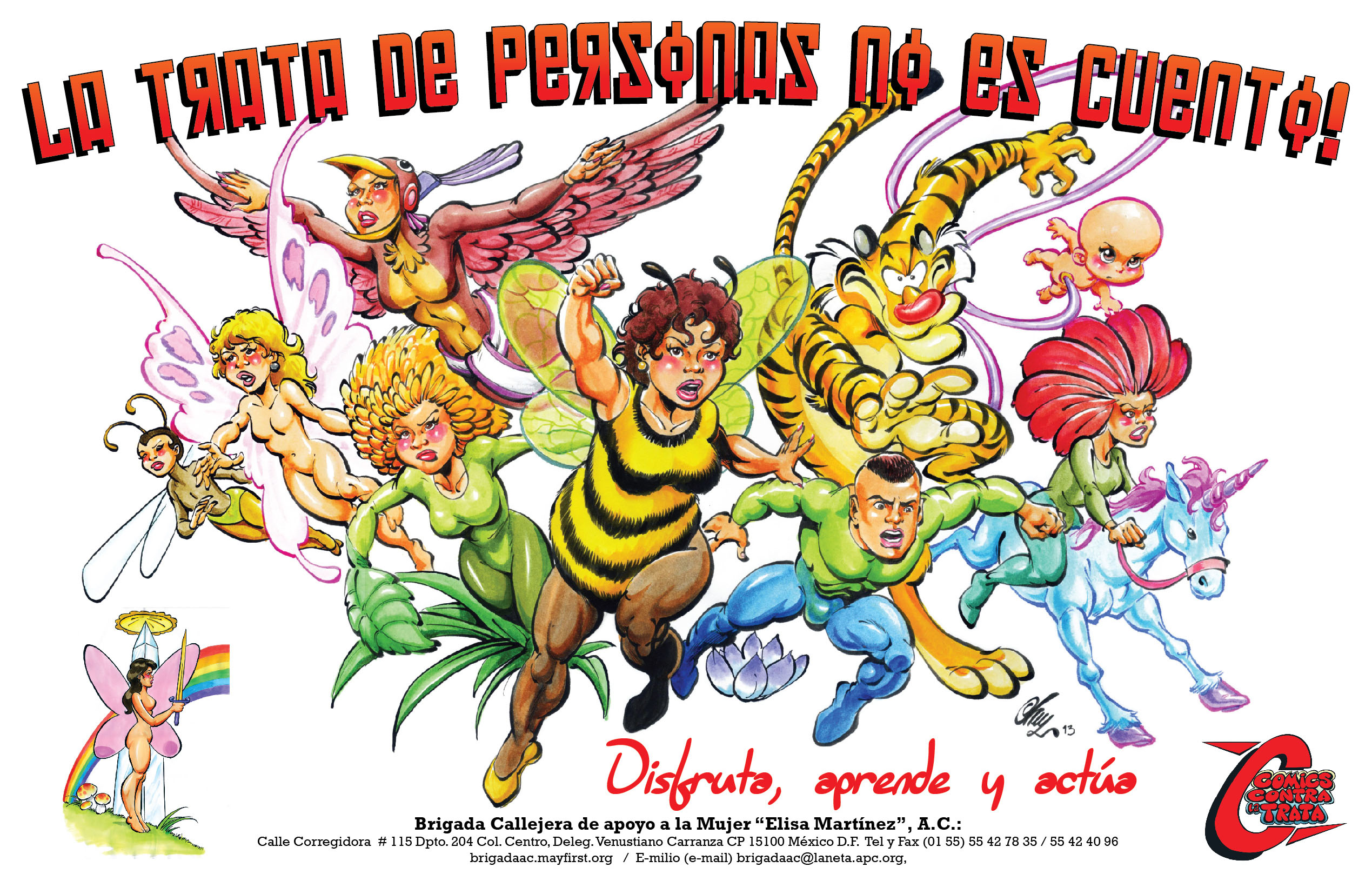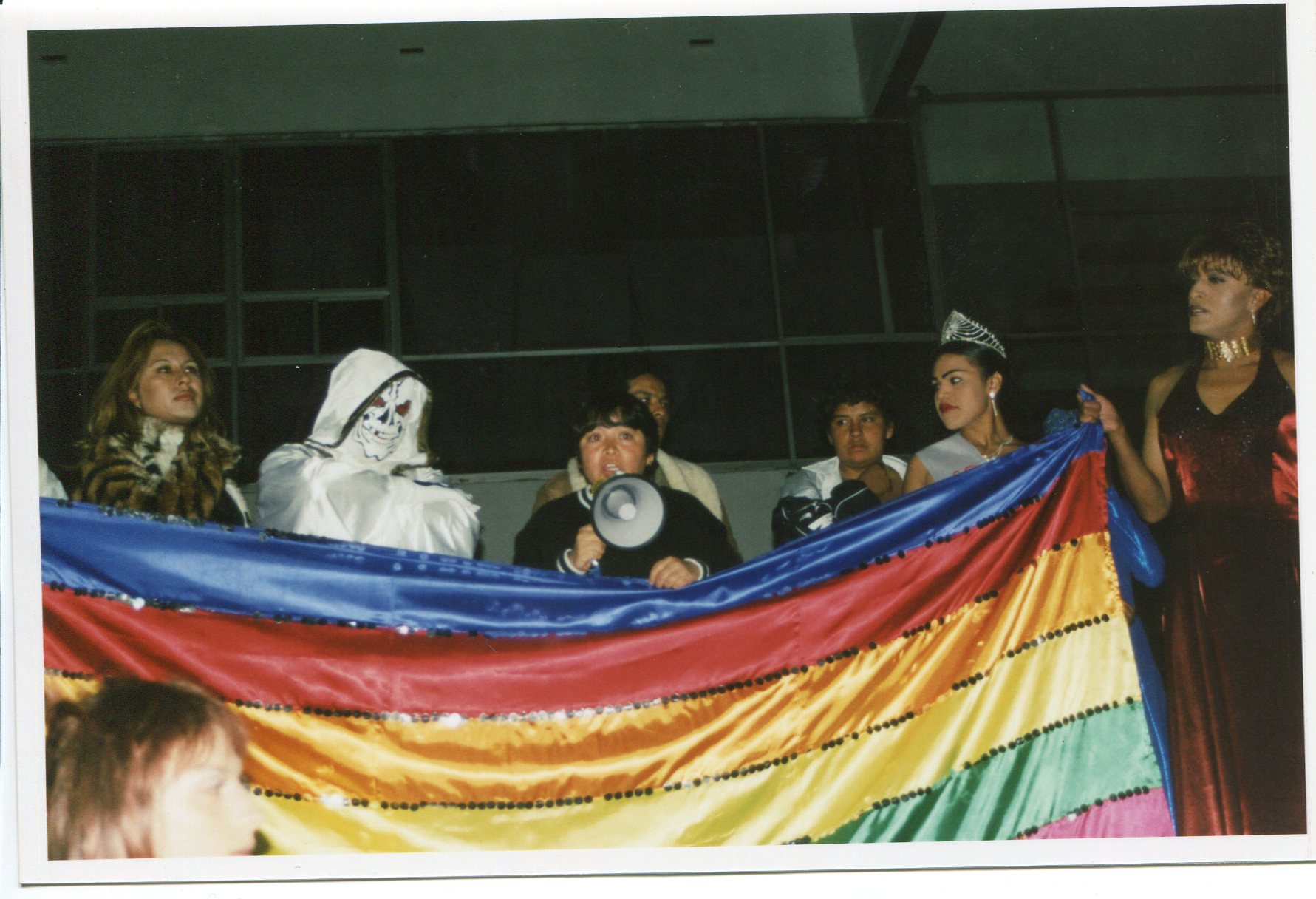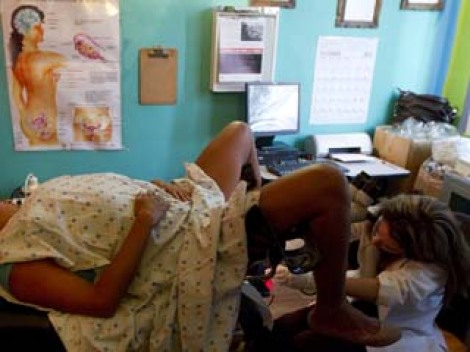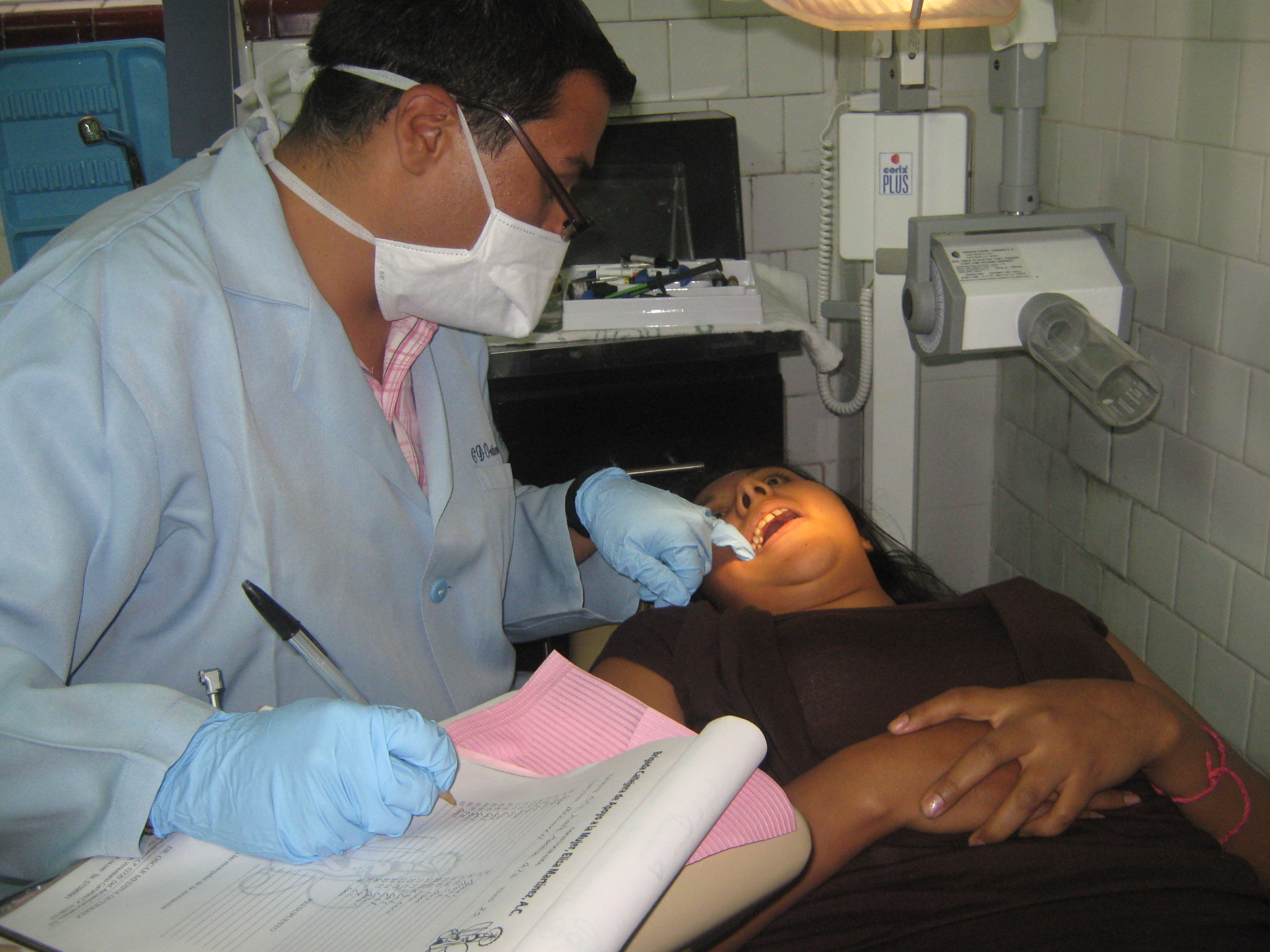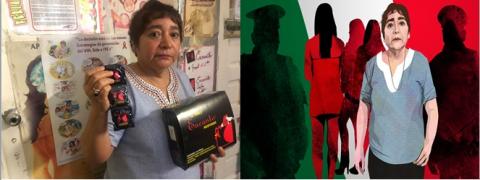
SHE’S TAKING MEXICO’S SEX TRADE TO THE NEXT LEVEL: LEGITIMACY
https://www.ozy.com/rising-stars/shes-making-mexicos-sex-trade-legit/97262/
By Deborah Bonello
THE DAILY DOSE OCTOBER 22, 2019
La Merced, in downtown Mexico City, is one of the country’s biggest and oldest retail markets. And the world’s oldest profession also thrives there. To the sides of the labyrinth of passageways that run along the market stalls selling, well, everything, stand women of all ages and sizes. Many of them play with their phones as they wait for their clients, leaning against the shops behind them to take the weight off their high-heeled feet.
The street of Corregidora, in the heart of La Merced, is home to La Brigada Callejera, which means Street Brigade. A collective dedicated to fighting for the rights of the country’s sex workers, it was formed nearly 20 years ago by Elvira Madrid because some 3,500 of the city’s estimated 7,000 sex workers are based here. Flitting through a barred door and then through a dank, dark corridor and up a few flights of stairs leads one to La Brigada’s brightly painted office.
On a Monday in early October, it was full. Some 25 sex workers had come to hear a local politician talk about one of the initiatives being considered by the city legislature to formalize sex work and — ideally — give those who provide it more rights and protections. Temístocles Villanueva, a local city deputy with President Andrés Manuel López’s Obrador’s party Morena, was doing his best to look at ease while completely out of his element.
WE DON’T BELIEVE IN LAWS BECAUSE WE HAVE LEARNED THAT LAWS ARE TO PUNISH THE POOR, NOT THE RICH.
ELVIRA MADRID
The initiatives being drawn up (Villanueva’s is one of six) are part of a wide-reaching effort by the city to try to regulate its 2 million informal workers, from taco sellers to shoe shiners. The idea is to include sex workers in the category of “non-salaried” workers and provide them with permits and benefits. “The permit aims to give you better rights, such as employment insurance,” explains Villanueva.
But the women aren’t convinced.
“Look, we don’t believe in laws because we have learned that laws are to punish the poor, not the rich,” says Madrid, 52, in the no-shit style for which she is known. As we talk, she munches on the enchiladas and corn cobs (elotes) passed around by her colleagues. An academic turned activist, she first learned about the reality faced by Mexican sex workers as a student in the 1980s. A professor of hers, Francisco Gómez Jara, published an investigation called The Sociology of Prostitution, and the penny dropped.
It was the first attempt Madrid could recall to depict the sex trade as the industry it was, rather than simply shame the women, men and trans people working in it. So she told her professor: “What a great investigation. Now, what are we going to do to change all of this?”
Bitter experience has taught sex workers to be distrustful of new legal initiatives.
Enter La Brigada. But there were challenges to working with a group that’s often vilified and naturally suspicious. “I had to earn their respect. How? By giving it to the police,” she says. She challenged arrests, saying the authorities should be protecting these people, “not fuck[ing] them over. That was when the girls started to see changes and started to act — to come here, to get together, to march for their rights.”
Less than 5 feet tall, with short hair and a sweet, round face, Madrid is a force to be reckoned with. She has received death threats many times, reliving with fiery tears in her eyes a memory of the day five hooded men came for her with guns. She escaped out the back. Another time, they beat her and her colleagues in an alleyway. Like the people she represents, Madrid is a survivor.
Merida has been working in the sex trade since she was 16 and became addicted to sniffing solvents and drinking alcohol. When she first met Madrid, she was immediately captivated. “Before, I didn’t use condoms,” says Merida, who didn’t feel comfortable revealing her last name because of the stigma attached to her profession. “I didn’t realize how important it was. Through Elvira, I learned the need to protect myself.” Madrid helped her get clean and sober and to finish her secondary school education. Merida notes, “I’m not what people try to make me feel — dirty and worth nothing. I know what my rights are now.”
Bitter experience has taught Madrid and her “children” — as some of the sex workers in the group call themselves — to be distrustful of new legal initiatives. A 2012 law against human and sex trafficking, she says, led to some of the harshest repression that the sex-working community in Mexico City has suffered.
La Brigada even produces its own brand of condoms for the price of two pesos each, rather than the going market rate of at least 25 pesos.
“They didn’t discriminate between sex work and trafficking,” Madrid says. “They closed a lot of hotels and imprisoned a lot of women who had nothing to do with trafficking. They said they are rescuing them, but they’re rescuing them from nothing.” That is at the heart of what La Brigada is about — asserting and respecting the rights of women to choose sex work as their profession, to be allowed to work it and improve the conditions in which they do so. La Brigada even produces its own brand of condoms for the price of two pesos each, rather than the going market rate of at least 25 pesos.
After reporting the abuses perpetrated in the name of the trafficking law, La Brigada won its biggest victory in 2013 — an “amparo,” or legal protection from arrest granted by a judge, for sex work in Mexico City. The ruling recognized their profession as a trade and offered some protections from the authorities.
Now, La Brigada is negotiating details of the new legal proposals that will have to get through Claudia Sheinbaum Pardo, Mexico City’s first elected female mayor. Madrid and her cohorts are against tolerance zones (claiming they allow the authorities to control sex workers and determine prices) and against obligatory health checks (which they say police have used to extort sex workers). They are demanding to be seen, heard, respected and, ultimately, just left alone to ply their trade.
Deborah Bonello, OZY Author Contact Deborah Bonello
- Inicie sesión o regístrese para comentar
